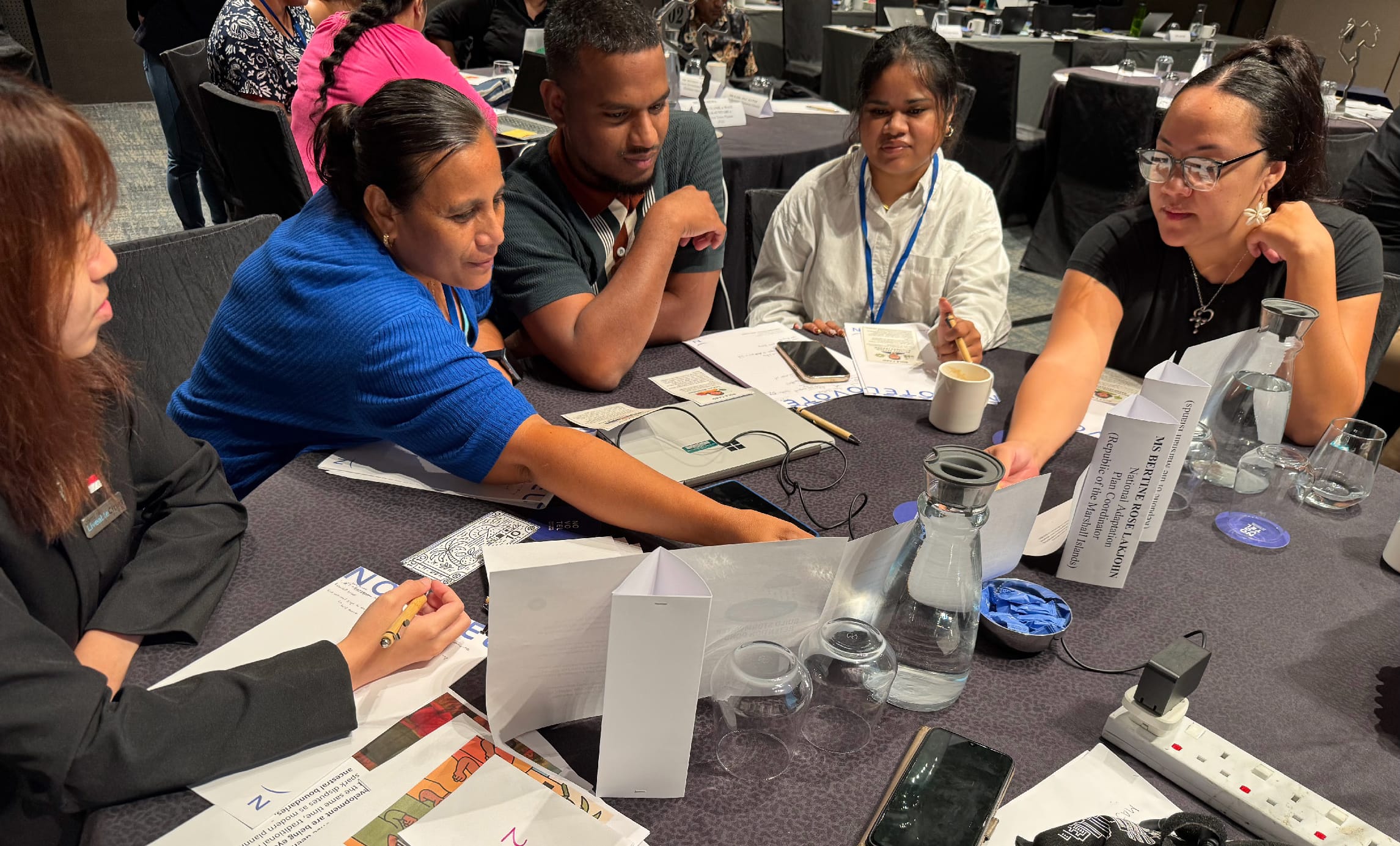Furthering Action on Climate Resilience: Highlights from SPARKS Module 2
25 June 2025
18 senior officials from 10 Pacific Island Forum (PIF) member states returned to Module 2 of the “Towards Climate Resilience & Urban Sustainability” programme under the SPARKS initiative.

Participants learning about Nature-based solutions at Bidadari Alkaff Lake
Building on the momentum of SPARKS Module 1 in 2024, CLC welcomed 18 senior officials from 10 Pacific Island Forum (PIF) member states to Singapore for the second instalment of the “Towards Climate Resilience & Urban Sustainability” programme held from 19 to 23 May 2025.
The programme is part of a 3-year effort under the Singapore-Pacific Resilience and Knowledge Sharing (SPARKS) assistance package to better enable PIF states in tackling urgent climate challenges, such as sea-level rise and extreme weather. The modules are developed by CLC and supported by the Ministry of Foreign Affairs.
From Broad Frameworks to Thematic Deep Dives

Participants appreciating the biodiversity-rich environment atop the walkway bridge at Sungei Buloh Wetland Reserve.
Module 1 laid the foundation on urban governance and long-term sustainability planning by introducing national frameworks, such as the Singapore Green Plan, which includes climate resilience measures, and CLC’s Liveability Framework.
Module 2 focused on issues of higher priority as identified by the Pacific Island states. These include coastal protection, inland flood management, water resource resilience, and the integration of nature into urban planning. In this context, learning journeys to specific sites were arranged for participants’ practical understanding.
At the Bidadari Alkaff Lake – presented a thriving ecosystem, where public housing and facilities co-exist with natural flora and fauna, amidst an extensive but unnoticed drainage infrastructure which prevents inland flooding;
Changi Water Reclamation Plant - provided insights into Singapore’s advanced methods of used water treatment;
Trail walk at the Sungei Buloh Wetland Reserve - demonstrated how biodiversity-rich environments can serve as natural defences against coastal erosion and climate impacts.

Participants viewing the pumps 60m below ground at the Changi Wastewater Reclamation Plant.
The cornerstone of the programme was the Action Planning segment, where Singapore’s domain expert practitioners guided participants in developing strategies to address their urban problem statements, such as the shortage of drinking water supply due to inland flooding, destruction of homes due to coastal erosion, etc. A customised role-playing exercise was especially well-received as it had participants navigate through realistic climate impact scenarios using different stakeholder perspectives.

SPARKS participants role-playing
Regional Participation and Growing Momentum
This second Module saw a mix of returning participants from Module 1 and new attendees from three additional PIF states. The diversity and depth of audience engagement and participation during the programme highlights the steadfast commitment among these states to co-develop adaptive urban strategies grounded in resilience and sustainability.
"The programme was highly relevant, well-organised, and thoughtfully curated. It offered a strong mix of theory, practical examples, and site-based learning... I look forward to applying the insights gained in Tonga’s climate resilience efforts."— Mr Taaniela Kula, CEO, Ministry of Lands, Survey, Planning and Natural Resources, Tonga
“Having the opportunity to grasp the knowledge acquired from the 5 days training & learnt a lot from the Singapore experience.”— Ms Fafetai Namoto, Acting Director/Tuvalu Survival Fund Coordinator, Tuvalu
Looking Ahead: From Planning to Implementation
Over the next 12 months and in the lead up to Module 3 to be held in June 2026, participating states are expected to refine the urban solutions in their action plans through internal consultations and virtual support from CLC’s domain experts.
Participants will then present their city action plans and strategies and further engage with solution providers and sectoral experts during Module 3.
CLC is excited for the PIF states to realise their ambitions to build a stronger, more climate-resilient future. We look forward to welcoming the remaining 5 member states to join the 11 current participants in Module 3!
Please contact CLC at clcilugp@gmail.com for more information on SPARKS Module 3.
Contributed by Grace Lau, Senior Assistant Director, Capability Development
